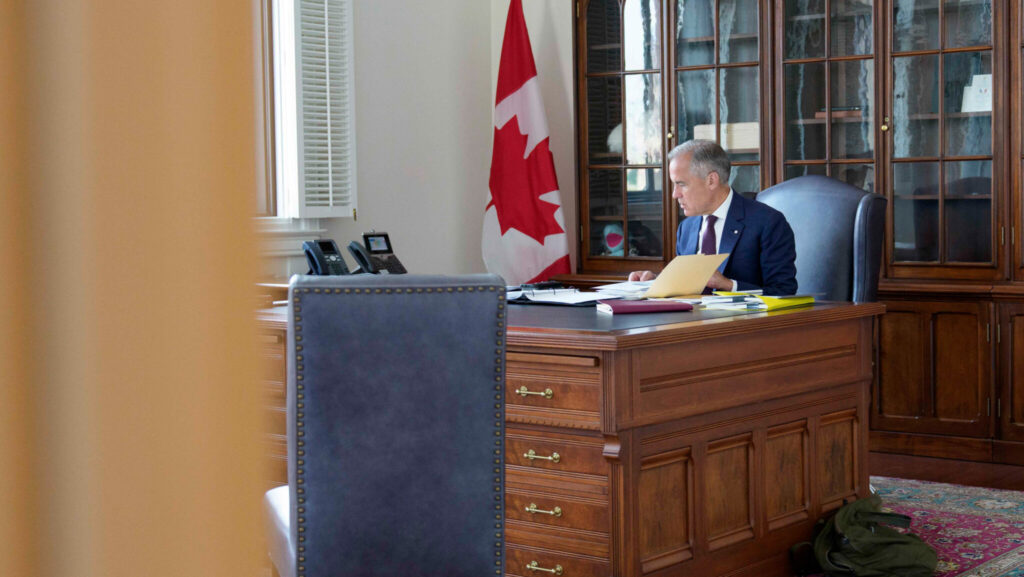
Prime Minister Mark Carney says the federal government will continue to back national social programs such as dental care, child care and pharmacare, even as tough spending decisions loom in the fall budget.
Speaking at a press conference in Edmonton on Thursday, Carney acknowledged the upcoming budget will require difficult trade-offs but stressed that affordability and security for Canadians remain priorities.
“One of the core reasons why we’re taking tough decisions is for affordability and security for Canadians,” he said. “We have to be in control of federal spending so we can continue to support those programs.”
Carney singled out pharmacare, dental care and child care as commitments Ottawa intends to maintain. Parliament resumes Monday, with the Liberals set to table a budget in October.
The Canadian Dental Care Plan (CDCP) continues to expand. As of July 31, 4,864,417 Canadian citizens and residents had been approved for coverage in 2025–26, including renewals. Of those, 843,354 had received dental treatment so far this year.
In its first full year, 2024–25, more than 2 million people (2,073,125) accessed care through the program. Combined, more than 2.9 million Canadians have used CDCP services since its launch.
Participation among providers is also growing, with 26,399 oral health professionals — including dentists, hygienists and denturists — now registered to deliver care under the plan.
Related: The CDCP and data: You don’t improve it if you don’t measure it
CUPE presses Ottawa to broaden eligibility
The country’s largest union is urging Ottawa to adjust the program’s rules. In a Sept. 8 letter to Health Minister Marjorie Michel, CUPE national president Mark Hancock asked the government to reconsider eligibility requirements that exclude temporary workers and recent immigrants who have not yet filed taxes or completed family reunification.
“Aligning CDCP eligibility criteria with established federal benefits practices would uphold the program’s income-testing criteria while ensuring that a large group of vulnerable workers are not excluded from the benefits of universal health care,” Hancock wrote.
He added that the program is already making a difference for people who could not otherwise afford dental care.
Related: The Canada Dental Care Plan: Missing pieces – A commentary on the national dental program
Pharmacare deals still on the table
Carney also confirmed Ottawa remains committed to signing pharmacare agreements with all provinces and territories, following months of uncertainty.
“Those are clear commitments and we will keep them,” he said.
The first phase of pharmacare launched last year, offering what the government calls “universal, single-payer, first-dollar coverage” for contraceptives and certain diabetes medications. Manitoba, British Columbia, Prince Edward Island and Yukon have signed on, representing more than 60 per cent of the $1.5 billion earmarked for the initial rollout.
The legislation also requires a study of how to move toward a full universal pharmacare model. A committee of experts is expected to report back to the health minister by Oct. 10, with findings to be tabled in Parliament later that month.
When asked Thursday if Ottawa would expand the program to cover all medicines, Carney said only that, “That is a different question.”
(With files from the Canadian Press)

